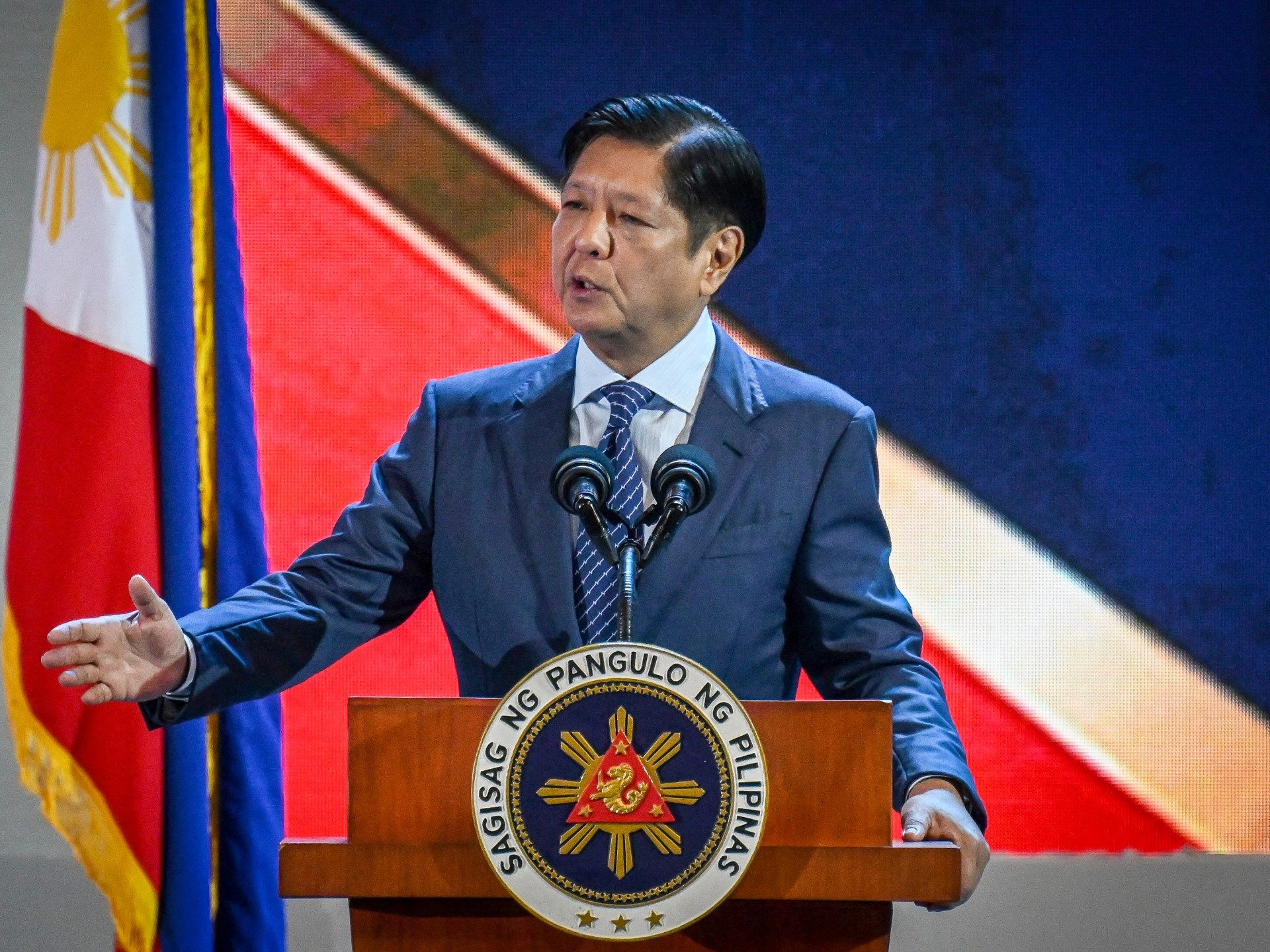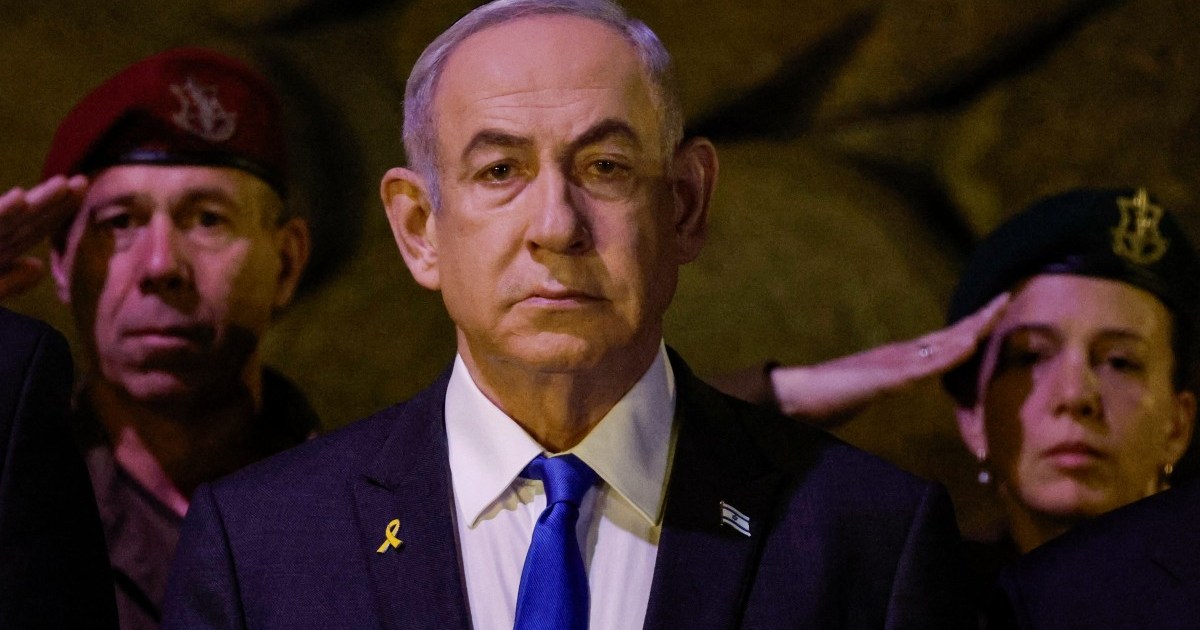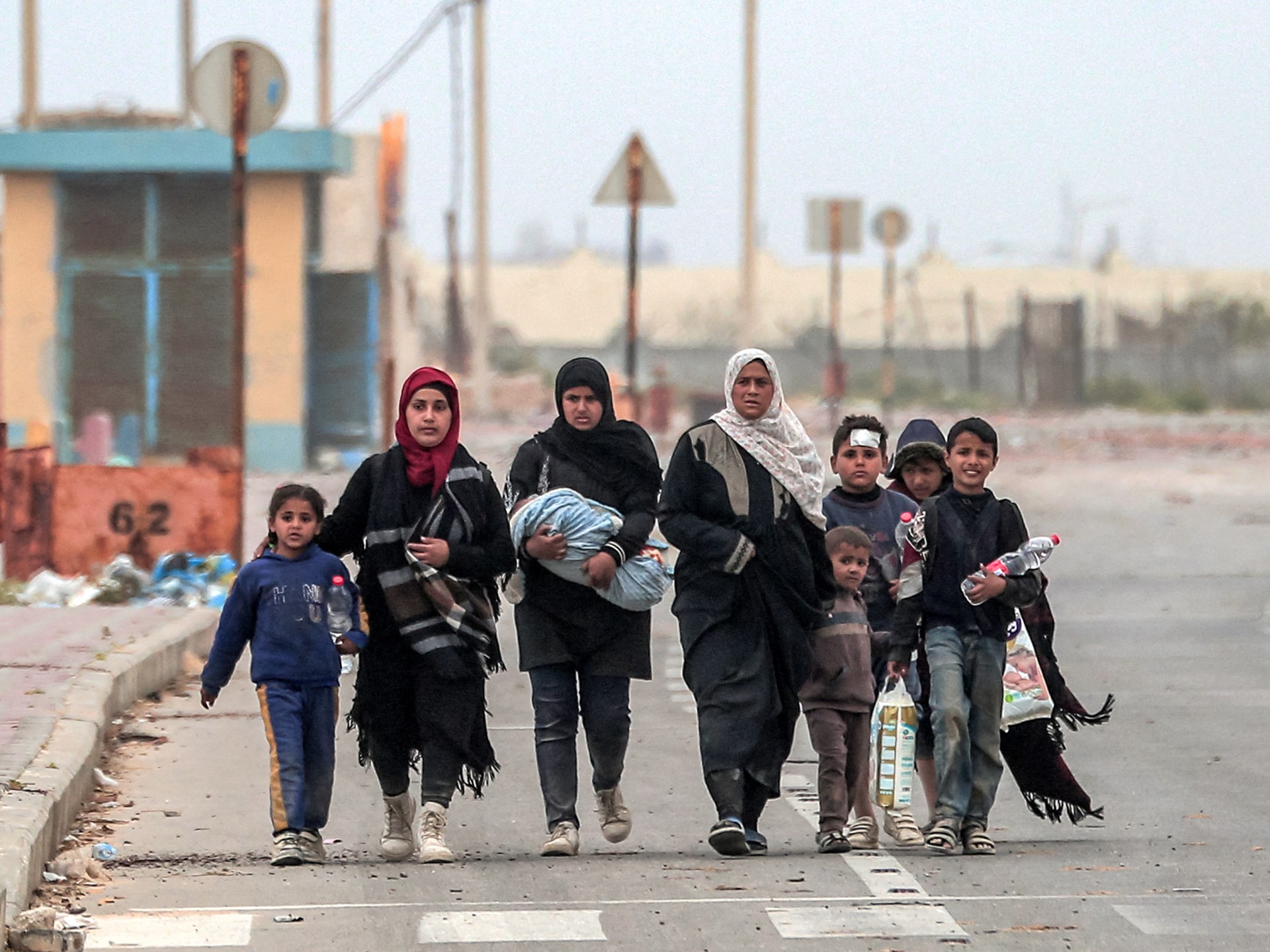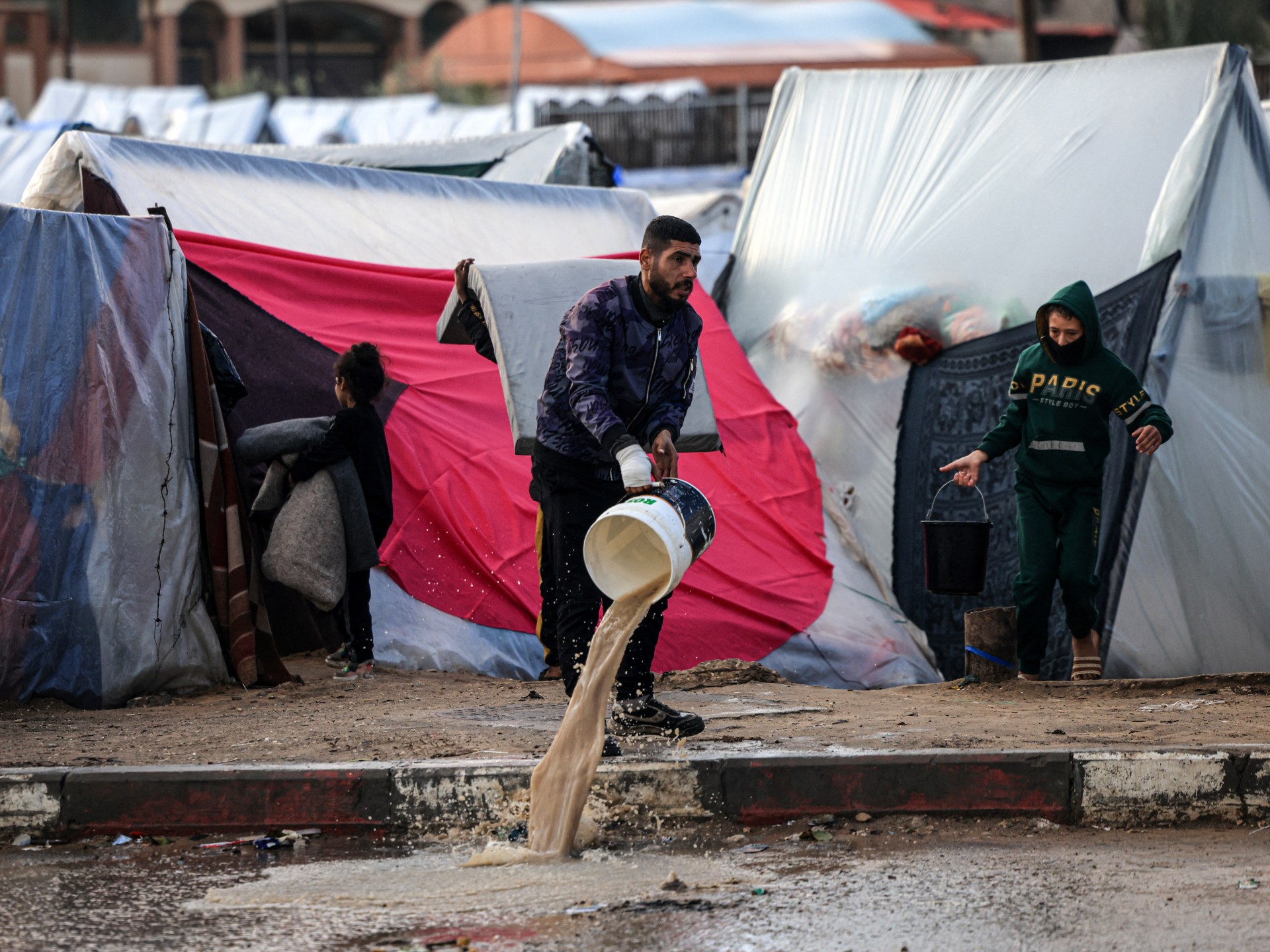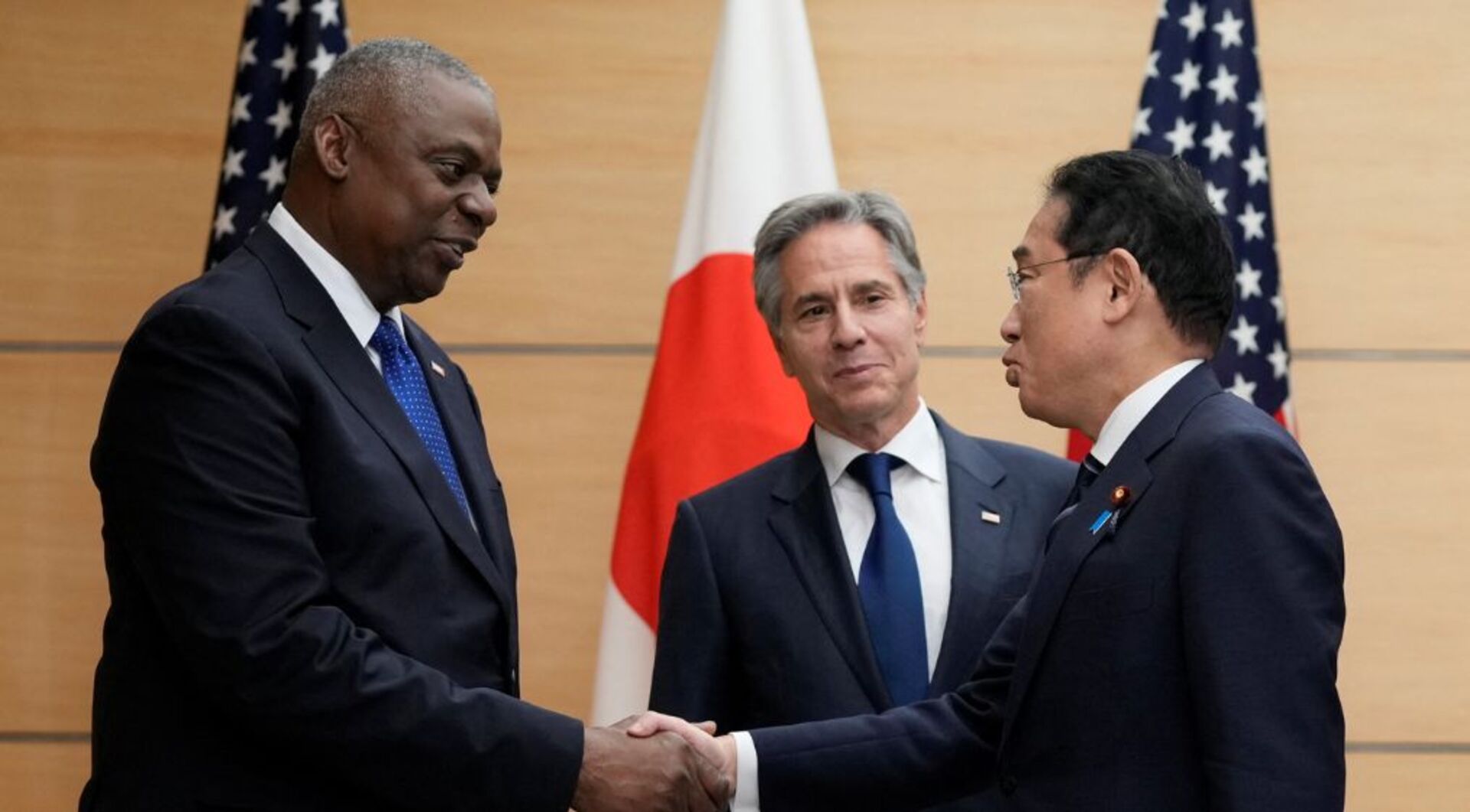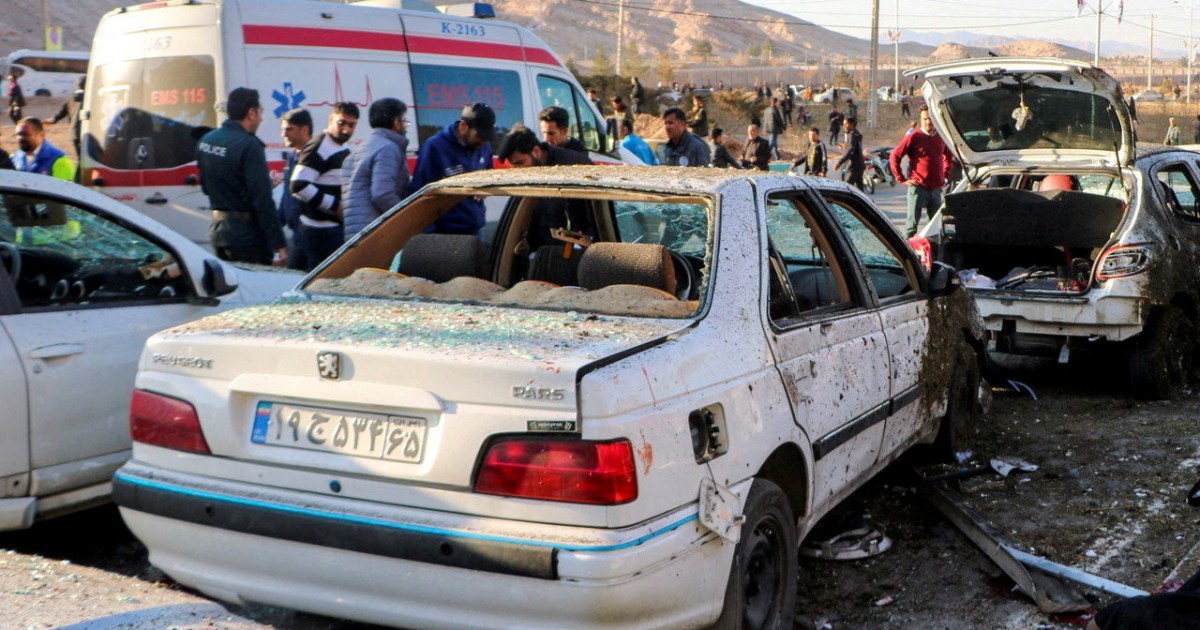Manila, Philippines – Over the past decade, the arrival of guests at the annual State of the Nation address in the Philippines has come to resemble a Hollywood premiere.
Lawmakers and officials show off eye-catching outfits and praise their designers as they head into the halls of Congress to hear the president's briefing.
MPs and opposition figures have often taken the opportunity to display dissident slogans and images on their clothing.
But ahead of President Ferdinand Marcos Jr.'s third address on Monday, the House of Representatives has banned any such attire.
“This is not a day of protest,” House Secretary General Reginald Velasco, who is in charge of enforcing the chamber’s orders and decisions, told reporters earlier this month.
As Marcos Jr. delivers his speech, tens of thousands of protesters are expected to march toward Congress in torrential July rains.
Some 22,000 police officers have been deployed to keep protesters away from parliament.
While Marcos Jr. is expected to tout the progress he has made in implementing an economic agenda focused on building infrastructure and attracting foreign investment, the protests come amid growing public discontent over inflation and slow wage growth.
In an opinion poll released by Pulse Asia Research earlier this month, 72 percent of Filipinos said controlling the rising cost of basic commodities should be the government's number one priority, ahead of low wages, poverty and unemployment.
In the same poll, Marcos Jr.'s confidence rating fell five percentage points compared with March, to 52 percent.
The management itself has also drawn criticism for its cost.
The government has earmarked 20 million Philippine pesos ($342,000) for preparations, which include catering for more than 2,000 guests, the highest amount ever spent on a State of the Nation address.
Renato Reyes Jr. of BAYAN, the activist coalition leading the protests, criticized the “dull showmanship” of the event.
“The real State of the Nation is not what is said on that stage but what is felt in the streets, from the point of view of ordinary people,” Reyes told Al Jazeera.
Marcos Jr. has pushed infrastructure spending and foreign investment as key levers to boost the economy.
He has praised his administration's record in launching 185 flagship infrastructure projects worth $162 billion and securing foreign investment pledges worth $14.2 billion.
He pointed to the International Monetary Fund's economic growth projections for 2024 and 2025 – 6 per cent and 6.2 per cent respectively – which are significantly higher than those of its neighbours Malaysia and Indonesia.
Economic analysts have given Marcos Jr. a mixed rating.
“The Marcos administration acted quickly and I think we are off to a good start these past two years,” National Economic Development Authority chief Arsenio Balisacan said last week.
Meanwhile, the Makati Business Club last week called for accelerated reforms in skills development, governance and energy infrastructure to “turn these investment promises into [a] reality”.
The Ibon Foundation, a think tank, has argued that the economic metrics touted by the government are misleading, as higher infrastructure spending and increased foreign investment coincide with a decline in the manufacturing sector to a 75-year low of 18 percent of gross domestic product (GDP).
Marcos Jr.’s policies “are generating profitability in some business sectors, but they are not producing broad-based national development,” Sonny Africa, Ibon’s executive director, told Al Jazeera.
Africa added that the “crude measure of economic activity provided by the state says nothing about how the gains from that activity are distributed, which is why more direct measures of poverty and hunger are so important.”
This month, the Social Weather Station, an independent polling group, reported that the self-reported poverty level reached 58 percent, a 12-point jump from March, representing an additional 3.1 million families, the highest level in 16 years.
“The Marcos Jr. administration is over-exaggerating economic growth to divert attention from more direct measures of people’s well-being, which clearly show rising poverty and hunger,” Africa said.
While the year-to-date inflation rate of 3.5 percent is within the government's target of 2-4 percent, workers have been clamoring for bigger pay rises.
Weeks before his State of the Nation address, Marcos Jr. approved a 35 peso ($0.60) increase in the daily minimum wage in Metro Manila.
The Kilusang Mayo Uno (KMU, May First Movement), an umbrella union, called the promotion an “insult”.
“Workers need decent wages. What they give us is pocket change that is not even enough for a kilo of rice,” Jerome Adonis, secretary general of the KMU, told Al Jazeera.
Marcos Jr also faces political risks following the collapse of his alliance with Vice President Sara Duterte, who last month resigned from her posts as education secretary and vice chair of an anti-insurgency task force.
Duterte, the daughter of former President Rodrigo Duterte, will be noticeably absent from Marcos Jr's speech following the disintegration of the pact between the Philippines' two most powerful political clans.
Temario Rivera, a professor at the University of the Philippines, said the union was doomed from the start because of “each clan’s competing strategic interests to dominate.”
Rivera said former President Rodrigo Duterte always believed his daughter would be a better leader than Marcos Jr.
In his speech, Marcos Jr., who has not commented on Duterte's decision to leave the Cabinet except to say it is his decision, is not expected to address the growing rivalry with his family.
Meanwhile, human rights group Karapatan has lamented that previous State of the Nation addresses have failed to mention human rights issues.
The University of the Philippines' Dahas Project, which monitors the drug war, has recorded 712 drug-related killings by state agents and hitmen under Marcos Jr., despite the president's pledge to make his predecessor's deadly campaign against drug traffickers “bloodless.”
Last May, Marcos Jr. ordered the creation of a “super-agency” for the protection of human rights “to sustain and enhance the achievements” made under the United Nations Joint Programme for the Promotion and Protection of Human Rights.
Cristina Palabay of Karapatan said expecting Marcos Jr. to seriously address human rights issues this year would be a “futile mission.”
Marcos Jr. likes to project “a rosy image to the international community while deliberately whitewashing the situation,” Palabay told Al Jazeera.
The Duterte and Marcos clans have also diverged in their international loyalties, with the former maintaining friendly ties with China and the latter welcoming an increased US military presence in the archipelago.
In his speech, Marcos Jr. is expected to reiterate his support for U.S. involvement in the Philippines' territorial dispute with China in the South China Sea.
The Duterte camp, by contrast, has refused to condemn China's sweeping territorial claims or its aggressive actions against Philippine vessels.
U.S. and Philippine officials will meet on July 30 to discuss the pending General Security of Military Information Agreement (GSOMIA), a pact that would improve intelligence sharing between the sides.
Even though the split between the two is weakening their political bases, Rivera said each side still enjoys strong support from their respective foreign allies.
Rivera said Marcos Jr. has the stronger position overall because “the local political culture deepened by the West Philippine Sea conflict and controversies linked to the activities of some Chinese nationals play against the Dutertes.”
Marcos Jr. highlights the traditionally strong pro-U.S. sentiment instilled during the colonial period “by facilitating a largely U.S.-driven military alliance in response,” Rivera said.

